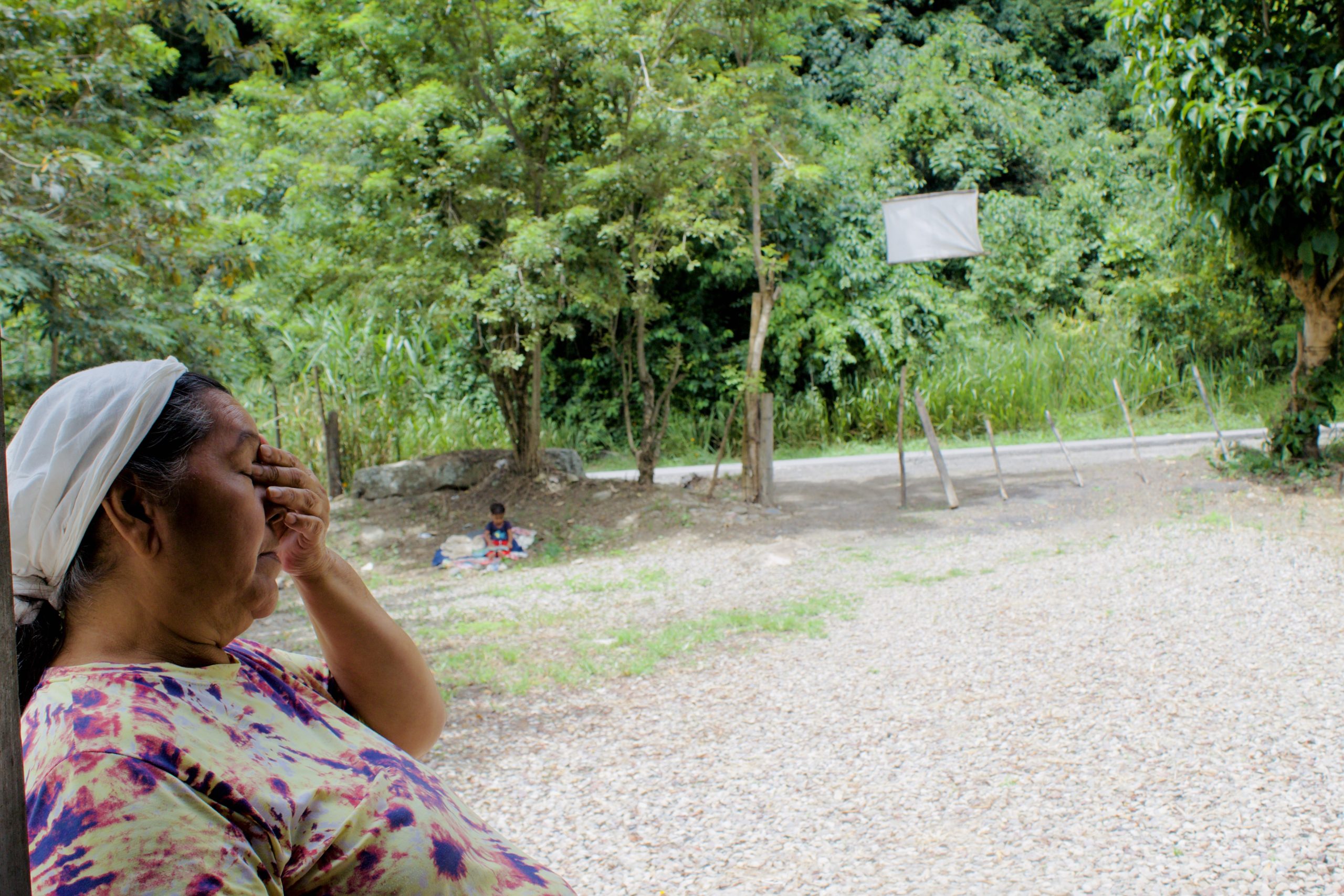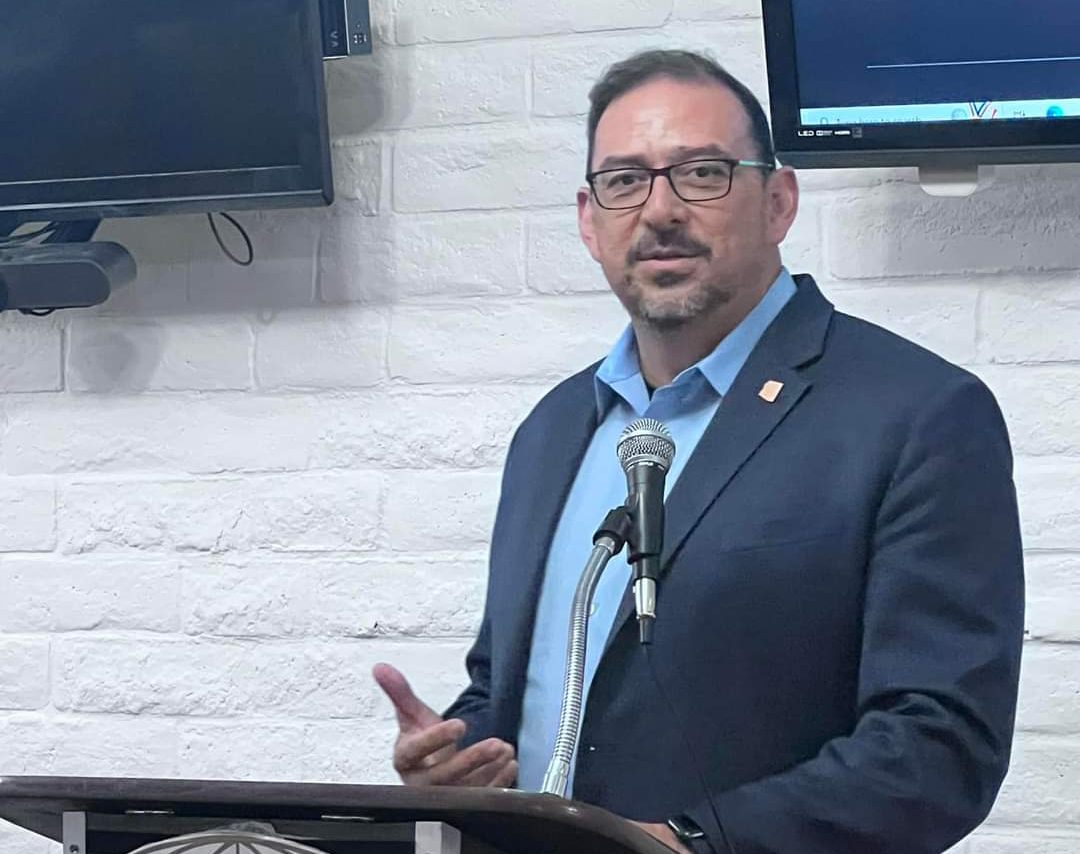The Mexican American Commission started in Nebraska 52 years ago. It was established by law to create a sort of middleman between Latinos and the state government. In 2010, it changed its name to the Commission on Latino-Americans.
But despite its tenure in the state, it remains an unknown resource for many Latinos and Spanish-speakers in Nebraska.
“I didn’t know the commission until I applied for the job,” said Executive Director Maria Arriaga.
And she’s not the only one. The Commission’s newest staff member, Marketing and Communications Specialist Ricardo Alcala, shares a similar story.
“I’ve grown up in the Latino community my whole life. And it was super shocking when I found out about the Commission because I was like, ‘How have I never heard about this before?’” he said. “I lived here for a bit in middle school and high school and then I lived here all throughout college, never once heard about the Commission.”
That’s why Arriaga made it her goal to expand the Commission’s reach when she started in her role a little more than a year ago.
“That’s why when I took over, I was like: ‘Okay, so I didn’t know the Commission.’ And when I talked to my friends, they didn’t know the Commission existed, so I’m going to change that,” she said.

Alcala said the Commission is working on being more present in the western region of the state, but it has been a challenge in the past, as many of the commissioners have been from Nebraska’s larger cities.
Nebraska’s Commission on Latino-Americans may find itself in a unique position in the Midwest as it works on expanding its presence. Other state governments are considering changes to their structures or never had a commission for Latino representation to begin with.
Missouri’s Hispanic Commission disappeared a few years ago. And Iowa’s Governor Kim Reynolds has proposed eliminating its current state Commission on Latino Affairs.
“It’s as much a resource for the Latinos as it is for the government officials,”
-Ricardo Alcala, Nebraska Commission on Latino-Americans
Arriaga said Nebraska has already seen some of those impacts–as her office has received a historically high number of phone calls from other states in the Midwest and the country from Latinos and Spanish-speakers in need of assistance.
“Because when they Google our information or Latino Commission or something, it pops up [for] the whole country,” she explained.
The Commission’s responsibilities, according to state law, include holding meetings to determine problems concerning Latino-Americans, offering services such as translation and immigration and legal resources as well as proposing new programs and policies to state government that would better the experiences of Latino-Americans in Nebraska.
Potential Impact of LB 1417
The Commission may be trying to expand its reach, but that comes at a time when some of its responsibilities could be getting cut. At his state address earlier this year, Nebraska Gov. Jim Pillen encouraged the legislature to terminate about 50 committees and commissions by voting to approve LB 1417. State Sen. Tom Brewer introduced the bill at the request of the governor.
Pillen’s Chief of Staff testified in support of the bill during its hearing in February. According to the governor’s communications director, the governor’s office is working with Brewer to “determine the best pathway forward on the bill.”
“It was somebody’s idea at one time– I’m not criticizing it– but the fact of the matter is, if an idea is not sustainable long term, it should be done away with,” Pillen said at a press conference following his State of the State address.
The governor’s office said the savings from this bill would be designated toward property tax relief, which is one of Pillen’s main focuses for the year.
Some of the proposed reductions could lessen the Commission on Latino-Americans’ role in the state: Like cutting the Racial Profiling Advisory Committee, of which the Commission plays a part.
“When boards and commissions haven’t been filled for years, or operating with, you know, a skeleton crew, you know, those are just common-sense business things that say, you know, there’s probably not much purpose for them,” Pillen said about the lack of applications for some of the commissions included in the bill.
Commissioners are appointed by the governor. Former Gov. Pete Ricketts last appointed individuals to the Racial Profiling Advisory Committee in 2022. The Nebraska Crime Commission website shows the last time the Racial Profiling Advisory Committee met was in 2021.
Its responsibilities include providing policy recommendations to prevent racial profiling in law enforcement. It is made up of representatives from the Commission on Latino-Americans, the NAACP, the Commission on Indian Affairs and others. Under the proposed bill, the responsibilities of the Racial Profiling Advisory Committee would go to the Nebraska Commission on Law Enforcement and Criminal Justice. If passed, the Racial Profiling Advisory Committee would be terminated in 2025.
The proposed bill currently sits at the committee level and has not been prioritized, reducing its chances of passing.
According to Ricardo Alcala, it’s important the Commission on Latino-Americans continues to stick around because “It’s as much a resource for the Latinos as it is for the government officials…no matter what your political stance, you’re going to need the Latinos’ vote,” he said. “And in order to get that, the Latino community is going to need to know that you have been listening to their opinions, their issues.”
Nebraska’s legislature is majority white, non-Hispanic.
“I want everybody to know that we’re here”
The Latino-Americans commission currently has seven volunteer commissioners appointed by the governor. The Commission has a chair, a vice-chair, secretary and a governor’s representative. The current chair, Maria Whitmore, and the rest of the Commission act as Executive Director Arriaga’s “supervisor,” and she is the “voice” of the Commission. They often provide insight and advice for her decisions as the executive director. There are currently two vacancies Pillen has not filled.
“One of the requirements for this position is that the person has a real genuine interest to help the community because it’s a voluntary position,” Arriaga said. “Once the person applies [and] submits the application, we basically have to wait until the governor’s office decides who is going to be the commissioner.”

The Commission has three paid staff members including Arriaga, Alcala and an office specialist. Arriaga said she hopes to see that change.
“Maybe at one point, it was suitable and that is totally fine. But I think in five years, due to the growth of the population, and to the growth of the needs and the different situations that we are facing, we need to have more people to help us to address those issues,” she said.
Arriaga has begun to implement that change in one way by opening a satellite office at Bellevue University’s El Camino Latino Center. That office is a way, she said, for people to get to know the Commission without potentially being intimidated in the Capitol building due to immigration status or other concerns. The Commission serves everyone regardless of immigration status.
“I think it’s more welcoming and more friendly for people that want to just to go there and meet with me and have a conversation and to feel that we have, like, an arm there also,” she said.
Online, Alcala is working on building one cohesive visual identity for the Commission. The Commission’s new website will be launched soon.
“I want everybody to know that we’re here, what we do and that we are a resource that is a little underused,” he said.
One of the main goals for the Commission this year is to help Nebraska’s Latinos navigate elections, especially the new voter ID laws.
Ricardo Alcala (left) and Maria Arriaga (right) pose for a photo in their new Bellevue University office. Arriaga, the Commission on Latino-Americans executive director, works closely with Alcala, the Commission’s marketing and communications specialist. (Photo by Kassidy Arena/Nebraska Public Media News)
Para leer esta historia en español, haz clic aquí.
Publisher’s Notes: The Nebraska Commission on Latino-Affairs works on growing its impact despite potential challenges was first published by Nebraska Public Media, and was republished with permission.
Part of Latino News Network’s mission is to amplify the work of others in elevating the visibility and voice of Hispanics, Latinos.




